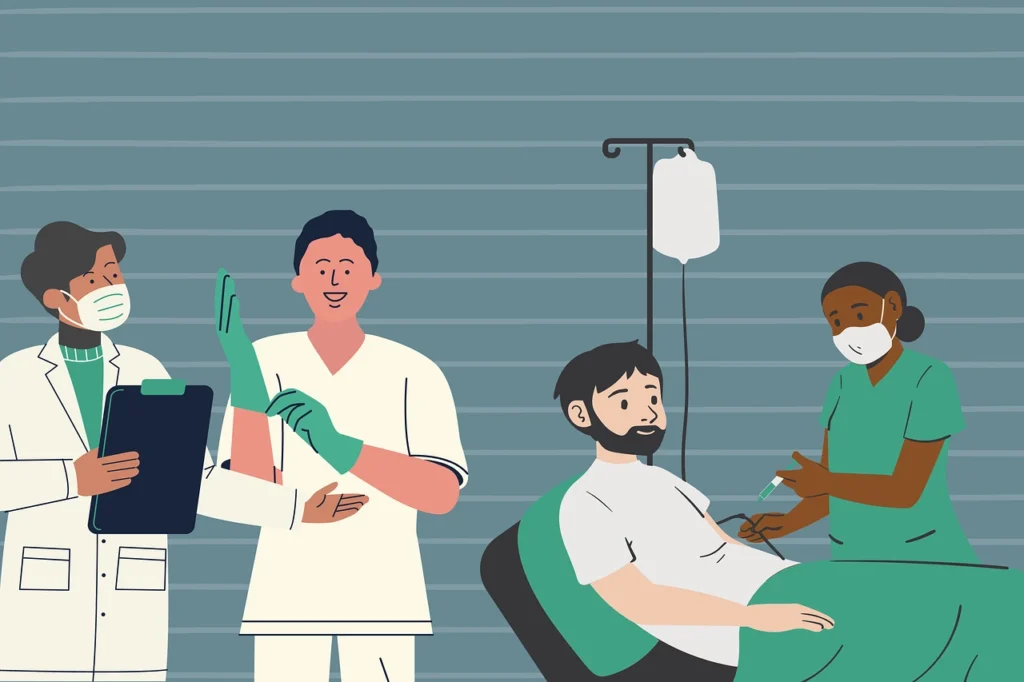Introduction

Cholesterol is a fat-like substance that occurs in every cell of the body, an essential component of the body. Its importance lies in its role in the production of hormones, vitamin D, and other substances that aid in the digestion of food products. Although cholesterol is useful, too much of it sums up to giving rise to many health issues, most of which result from heart diseases. As a result, it is important to know cholesterol levels, risk factors, preventive measures, and treatments to keep one’s heart healthy and safe.
What Is Cholesterol?
Cholesterol travels through the bloodstream via lipoproteins. Of these, there are primarily two: low-density lipoprotein (LDL) and high-density lipoprotein (HDL). Normally, LDL is often referred to as “bad cholesterol” because it may deposit inside the walls of arteries, causing plaque buildup and thus elevating the risk of heart disease. On the other hand, HDL, or “good cholesterol,” carries extra cholesterol out of the bloodstream in order to reduce the risk of plaque formation inside arteries.
Cholesterol Levels: What’s Normal?
Cholesterol must be kept at a healthy level, and this does not allow plaque to form within the arteries, which can cause heart attacks and strokes. The cholesterol level is expressed in milligrams per deciliter (mg/dL).
Categories for normal cholesterol levels are listed as follows:
Total cholesterol: desirable levels are below 200 mg/dL, and high levels are above 240 mg/dL.
LDL Cholesterol: Desirable less than 100 mg/dL. Levels of 160 mg/dL or higher are high, while levels above 190 mg/dL are very high.
HDL Cholesterol: Greater than 60 mg/dL is helpful in reducing heart disease risk. Less than 40 mg/dL for men and less than 50 mg/dL for women are low.
Triglycerides: Levels within 150 mg/dL are normal, and higher levels above 200 mg/dL are termed as high. Both the risk of cardiovascular diseases will be increased by high LDL together with low HDL with high triglyceride.
Causes of Diseases Due to high cholesterol levels
When levels are high, especially for LDL cholesterol, it promotes a condition generally known as atherosclerosis, in which cholesterol deposits form plaques on the walls of arteries, which can seriously constrict the arteries and prevent the smooth flow of blood, thus causing serious health complications that include the following:
Coronary Artery Disease: Narrowed coronary arteries reduce blood flow to the heart, which can cause angina and heart attacks.
Blockage: If plaque builds up within the blood vessels that go to the brain, it will lead to a stroke. With that, there may be a potential for neurological damage or death. PAD: It can also cause plaque to collect within the arteries of your body’s limbs, thus causing an ache and numbness in the limbs and also tissue damage if it gets worse.
High Blood Pressure: The blood vessels constrict, and then the heart will have to work harder in order to force it through the constricted passageways. This could, over time, cause hypertension, raising the dangers of heart disease and stroke.
Preventive Measures

Prevention of high cholesterol and its diseases is carried out by a healthy lifestyle of being heart healthy. Fundamental preventive measures are:
Healthy Diet: Higher amounts of fruits, vegetables, whole grains, lean protein, and healthy fats are in a healthy diet. Saturated fats should be limited, such as those found in red meat, full-fat dairy foods, and processed foods, and trans fats found in some packaged and fried foods.
Regular Physical Activity: The total objective is to perform a minimum of 150 minutes of moderate-level aerobic physical activity or 75 minutes of vigorous-intensity exercise every week. Exercise promotes the rise of HDL cholesterol but reduces LDL and triglycerides, promoting heart health.
Do Not Smoke: Smoking lowers HDL cholesterol levels and damages the walls of arteries, making it easy for plaques to build inside them. Stopping smoking is probably the best method of increasing cholesterol levels and preventing heart disease.
Moderate Drinking: High alcohol consumption can raise triglycerides. If you drink, limit your intake—one drink a day for women and two a day for men.
Healthy Weight: If you’re overweight and obese, you tend to have higher levels of LDL and triglycerides. A modest weight loss improves levels of cholesterol.
Schedule health checks: Everyone over 20 should be tested for cholesterol levels in a bid to identify early stages of high cholesterol and treat it well.
Treatment Measures
If lifestyle changes are not sufficient, then medical treatments can be initiated. Among the most commonly employed treatments when patients are affected with high cholesterol is the use of the following:
Statins: Statins are the commonly prescribed drugs that people seek for treating cholesterol disorders. They block the liver from making more cholesterol, hence reducing the level of LDL cholesterol, hence limiting further progression of heart disease.
Bile Acid Sequestrants: These medications can actually help in lowering your cholesterol by binding bile acids with the digestive system, which can stimulate your liver to use excess cholesterol in making even more bile acids.
Cholesterol Absorption Inhibitors: Such a drug is Ezetimibe, which works by preventing the absorption of cholesterol into your intestines. It decreases overall blood cholesterol levels.
PCSK9 Inhibitors: This is the newest emerging drug class. The injectable drugs increase the uptake of LDL cholesterol in the liver, thereby significantly lowering it within the bloodstream.
Fibrates: These drugs decrease triglyceride levels and improve HDL cholesterol, further aiding the heart.
Omega-3 Fatty Acid Supplements: Derived from the lipids of fish oil or other such sources, these supplements lower the level of triglycerides. These are prescribed with other treatments to patients whose levels exceed the recommended guidelines.
Conclusion

High cholesterol, or more precisely, high LDL levels, are the major risk for heart attacks, strokes, and peripheral artery disease. Good diet, regular exercise, not smoking, and maintaining proper weight are the first steps taken toward managing cholesterol in the natural sense. Regular check-ups may be necessary to catch high cholesterol early since it often has no noticeable symptoms. For such patients, the best alternatives for normalizing cholesterol levels and preventing cardiovascular diseases may involve using statins, PCSK9 inhibitors, and fibrates.
Through cholesterol knowledge and preventative measures, it is possible to reduce the danger of serious complications in health and live longer with good health.


